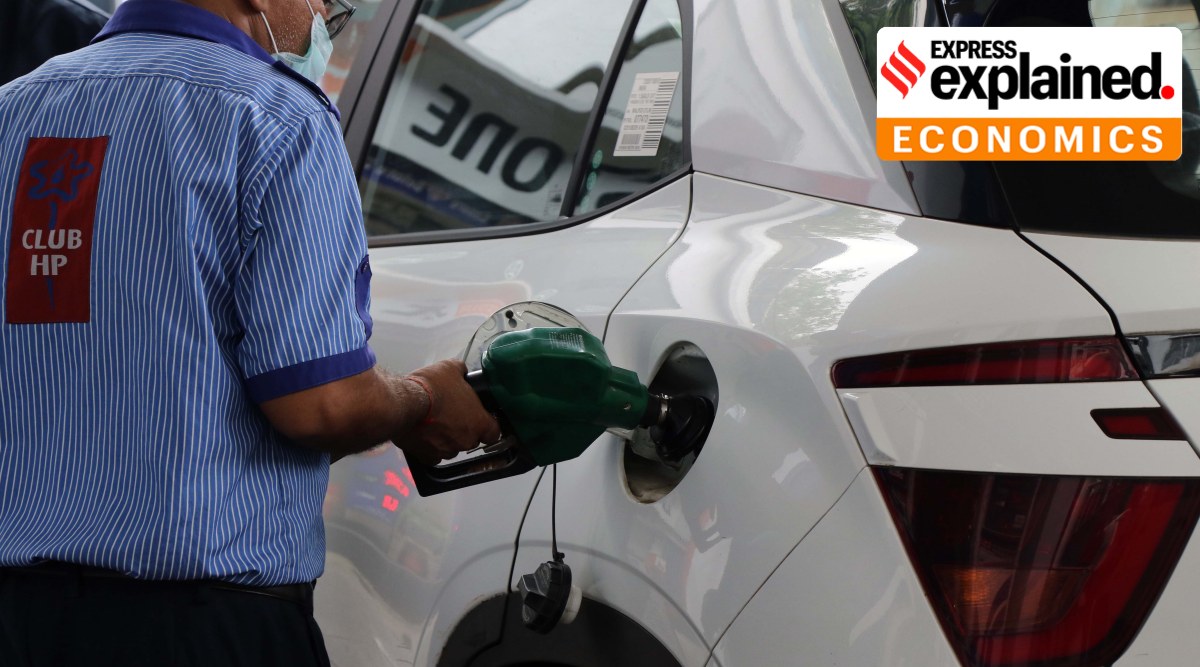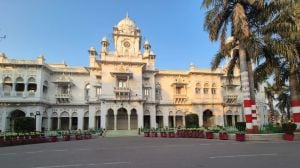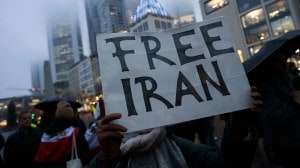Explained: Why petrol, diesel prices have been hiked after a 137-day freeze
Petrol and diesel prices have been hiked for the first time in over four months. Why now? Will they increase further?
 The prices of both petrol and diesel are expected to increase further. (Express File Photo: Ganesh Shirsekar)
The prices of both petrol and diesel are expected to increase further. (Express File Photo: Ganesh Shirsekar)Petrol and diesel prices were raised on Tuesday for the first time in over four months as oil marketing companies (OMCs) hiked prices of both fuels by about Rs 0.8 per litre. The price of petrol in the national capital is now Rs 96.21 per litre while diesel is retailing at Rs 87.47 per litre. The prices of both petrol and diesel are expected to increase further as OMCs hiked the price of bulk diesel by Rs 25 per litre on Sunday, taking bulk prices well above prices at retail pumps.
Why have oil marketing companies hiked fuel prices?
Oil marketing companies have hiked the prices of petrol and diesel after a gap of over four months as there has been a sharp increase in the price of crude oil. The price of Brent crude has increased by 45 per cent to $118.5 per barrel, up from $81.6 barrel when OMCs last revised fuel prices. India imports about 85 per cent of its crude oil requirements.
Ordinarily, the prices of petrol and diesel are revised daily in line with a 15-day rolling average of benchmark prices of the petroleum products. However, oil marketing companies held the prices of both fuels constant starting on November 4, when the Centre announced a Rs 5 per litre cut in excise duty on petrol and a Rs 10 per litre cut in excise duty on diesel. The freeze in price revisions continued till the end of the state elections in Uttar Pradesh, Punjab, Uttarakhand, Goa and Manipur earlier this month.
🗞️ Subscribe Now: Get Express Premium to access the best Election reporting and analysis 🗞️
How much are fuel prices expected to rise?
Experts note that the prices of both petrol and diesel need to be hiked by about Rs 0.52 for every $1 per barrel increase in the price of crude oil to allow OMCs to maintain their marketing margins. Since the price of crude has increased by nearly $37 per barrel since the previous price revision, OMCs may need to hike prices by Rs 19 per litre for both petrol and diesel to restore marketing margins.
However, an increase in refining margins — the difference between the price of crude oil and the value of petroleum products produced using crude oil in a refinery — may allow refiners to continue to absorb some of the impact of higher crude oil prices. Analysts have noted that the Centre may also reduce excise duties on petrol and diesel, which are still above pre-pandemic levels, to reduce the impact of high crude oil price on consumers.
Central excise duty on petrol is still Rs 8 higher than pre-pandemic levels, while excise duty on diesel is still Rs 6 higher than pre-pandemic levels.
What is the difference in the prices of diesel for bulk and retail buyers of diesel?
Despite the retail hike, price of bulk diesel is now about Rs 25 per litre higher than that of diesel at retail points of oil marketing companies across the country. In Mumbai, the bulk price of diesel has been hiked to Rs 122 per litre compared to Rs 94.14 per litre at retail points in the city, according to sources at oil marketing companies.
What will be the impact of the hike in the price of bulk diesel?
Key bulk buyers of diesel, including the Indian Railways, factories, malls, transport companies, will face significantly higher prices than retail consumers. Diesel is primarily used by industry to power gensets for power backup and also for the operations of mobile towers. Power backup will also become more expensive for housing societies that use diesel gensets as a backup for power supply.
An expert who did not wish to be quoted said higher prices for bulk buyers may disproportionately affect users of gensets in tier 2 and tier 3 cities as power supply is more reliable in tier 1 cities such as Delhi and Mumbai.
Industry has noted that the move to hike bulk diesel prices will incentivise bulk consumers to source fuel at retail points.
A spokesperson of Reliance BP Mobility Ltd (RBML) said there is a massive surge in demand at fuel stations due to the Rs 25 price difference per litre between retail and industrial diesel. This is leading to heavy diversion of Bulk Direct Customers to retail outlets. The spokesperson also highlighted the spike in purchases by regular as well as commercial customers who are buying in advance in anticipation of a price hike. RBML operates over 1,380 retail fuel outlets across the country.
Sources at RBML confirmed that it had reduced the supply of both petrol and diesel at retail points as it was facing losses on the sales of both products. When the price of crude oil had hit record highs in 2008, Reliance was forced to shut fuel retail operations as it was not able to match the subsidised prices offered by state owned OMCs.
Union Minister for Petroleum and Natural Gas Hardeep Singh Puri confirmed last week that the consumption of petroleum products had increased sharply in anticipation of fuel price hikes.
Newsletter | Click to get the day’s best explainers in your inbox
- 01
- 02
- 03
- 04
- 05







































